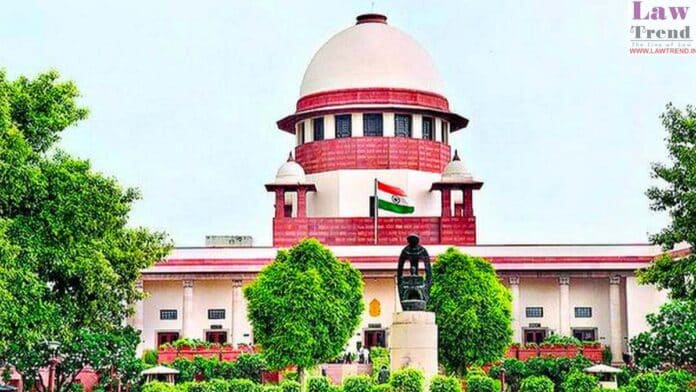The Supreme Court said on Monday it will hear in September the petitions filed by Muslim body ‘Jamiat Ulama-i-Hind’ and others seeking directions to various state governments to ensure no further demolition of properties of those accused in cases of rioting and violence takes place.
The pleas came up for hearing before a bench of Justices B R Gavai and J B Pardiwala.
Senior advocate Dushyant Dave, representing the petitioners, told the bench the law on this needs to be settled for the reason that now it has become a “fashion” across the country to go and demolish people’s homes “without any sanctity of law”.
He referred to the recent incident in Sidhi district of Madhya Pradesh, where the house of an upper caste offender who allegedly urinated on a tribal man, was demolished, while acknowledging the act was despicable and the perpetrator needed to be taken to task.
“…but you cannot go and demolish his house. What about his family?” Dave said, adding, “everywhere in the country, it has become fashionable to exercise this power.”
The ‘Jamiat Ulama-i-Hind’ had earlier filed a plea in the apex court on the issue of demolition of buildings in Jahangirpuri area of the national capital last year following communal clashes.
Dave argued the apex court has said the right to shelter is right to life, and demolition of houses were carried out targeting a particular section of society in Delhi.
The bench said in the Delhi matter, a notice was issued by the authority concerned which talks about a joint encroachment removal programme.
“First, there has to be a satisfaction that the property we intend to demolish is an unauthorised structure which has been encroached upon and therefore it needs to be demolished,” it said.
The bench said the case of the petitioners appeared to be that under the guise of encroachment removal, some personal scores were being settled and random buildings demolished.
Solicitor General Tushar Mehta referred to an affidavit filed in the matter concerning Uttar Pradesh.
He told the bench that the affidavit says merely because a person is alleged to have been a part of an offence, it can never be a ground based upon which his immovable property can be demolished.
Mehta also refuted the petitioners’ claim that structures belonging to a particular section of society were targeted during the demolition drive.
The bench said it will hear the matter on a non-miscellaneous day in September.
In the Supreme Court, Mondays and Fridays are miscellaneous days when only fresh petitions are taken up for admission hearing. Tuesday, Wednesday and Thursday are known as the non-miscellaneous days on which regular hearing matters are heard.
On April 20 last year, the apex court had stalled the anti-encroachment drive by authorities Jahangirpuri area of Delhi after taking note of a plea of ‘Jamiat Ulama-i-Hind’ that buildings of Muslim riot accused are being razed.
Also Read
In July last year, the top court had refused to pass any interim direction staying demolition of properties of those accused of involvement in violent protests across various states.
It had wondered how it could pass an omnibus order on demolitions if there is an illegal construction and the municipal corporation or the council is authorised to take action.
The bench had also asked the parties to complete the pleadings in the matter in the meantime.
The Muslim body had earlier filed a petition in the apex court seeking directions to the Uttar Pradesh government to ensure no further demolition of properties of those accused of violence is carried out in the state.
It had said no demolition of properties should be carried out without following the due process and such exercise must be done only after adequate notice.




